Connecting Fairfax City's Past and Present to Build a More Equitable and Inclusive Future
On July 12, 2022, City Council voted to change the names of 14 streets as recommended by the Stakeholder Advisory Group. Watch the meeting.
UPDATE July 12, 2022: City Council voted to change 14 street names. Watch the meeting. If you would like to submit names for consideration, please complete the survey.
Connecting Fairfax City for All
The City of Fairfax recognizes there is strength in diversity and acknowledges the need for a broader community conversation around the issues of racial and social equity, systemic racism, symbolism, and identity.

Evolving views about who and what should be memorialized in public spaces and on public land present an opportunity for the City of Fairfax to examine its nomenclature. Confederate-related street and place names, historical markers and monuments, and elements in the city seal will be discussed in the context of how these symbols reflect the City Council’s goals of inclusivity and building community.
City residents are invited to participate in thought-provoking conversations that connect current realities with the city’s historical past. Ultimately, through a series of listening and learning opportunities, the goal is to connect the present to a more equitable and inclusive future for all city residents, businesses, and visitors.
“This initiative, endorsed by the City Council, holds great promise for our city residents to engage with each other with respect, compassion, and an openness to learning and gaining a greater understanding of each other,” said City of Fairfax Mayor David Meyer. “This is an opportunity for all of us to discern what actions we may take to create a preferred future that is inclusive and more just and equitable.”
Partnership with George Mason University
To accomplish this work, the city has partnered with the George Mason University Jimmy and Rosalynn Carter School for Peace and Conflict Resolution. Working with the Carter School, the city has outlined a process to listen to community voices, engage the community in learning sessions and structured, facilitated discussions, and will form a diverse working group to make recommendations on action items and identify areas for further community discussion. City Council will consider the recommendations in 2021 before making decisions regarding the city’s nomenclature.
Please explore this project site, drop a pin on the map, share your ideas, tell your story, or leave a comment. Click on the social media icons to share with others.

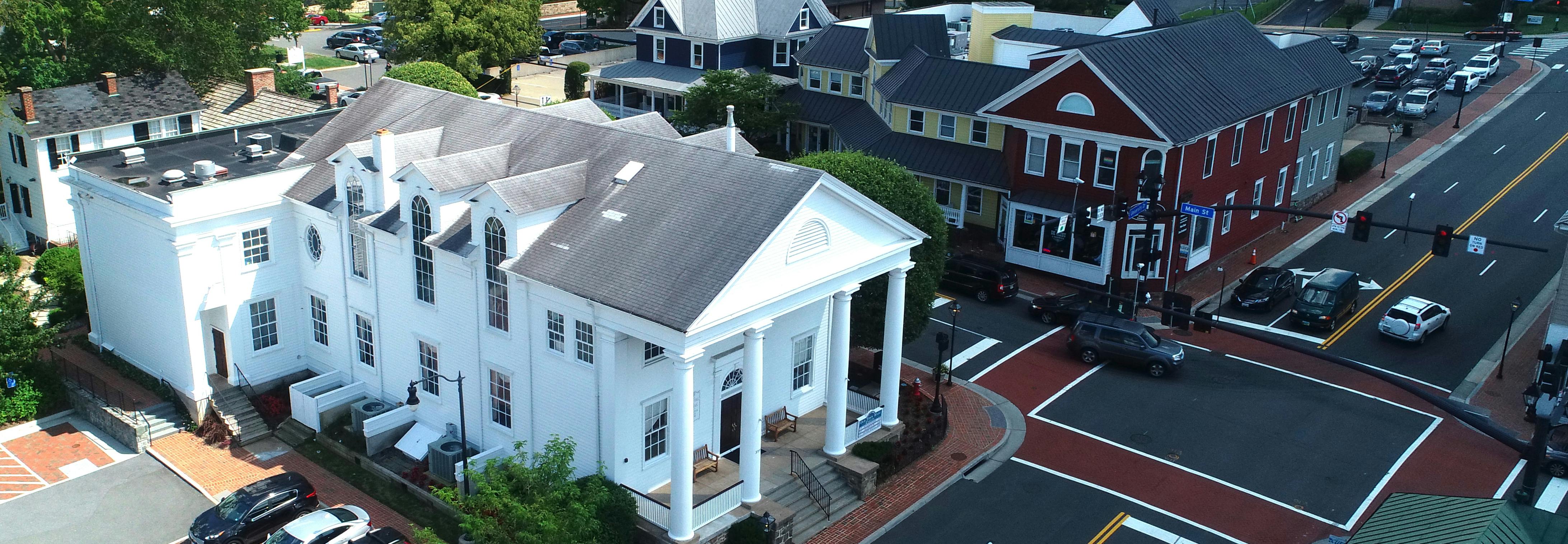









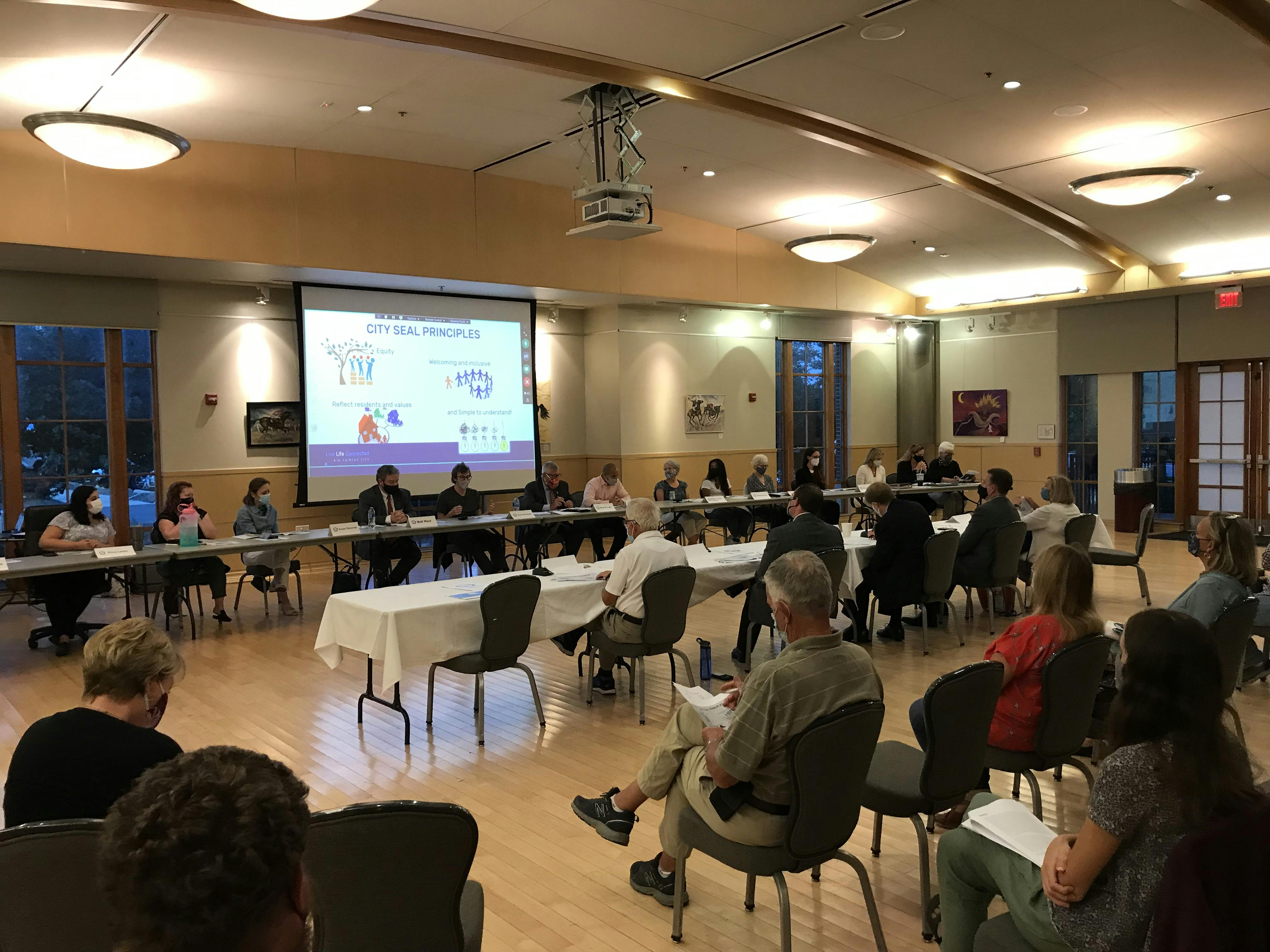
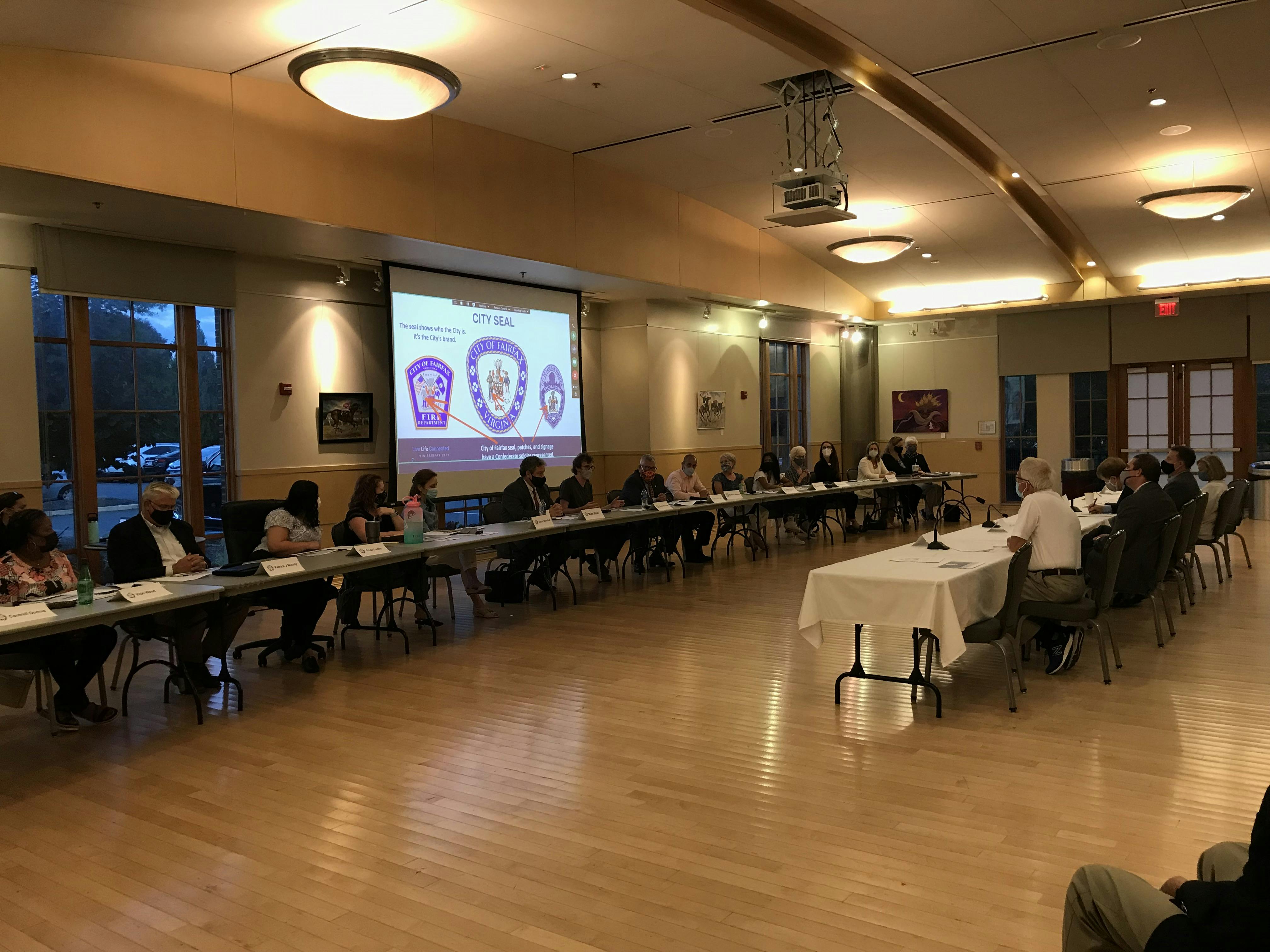
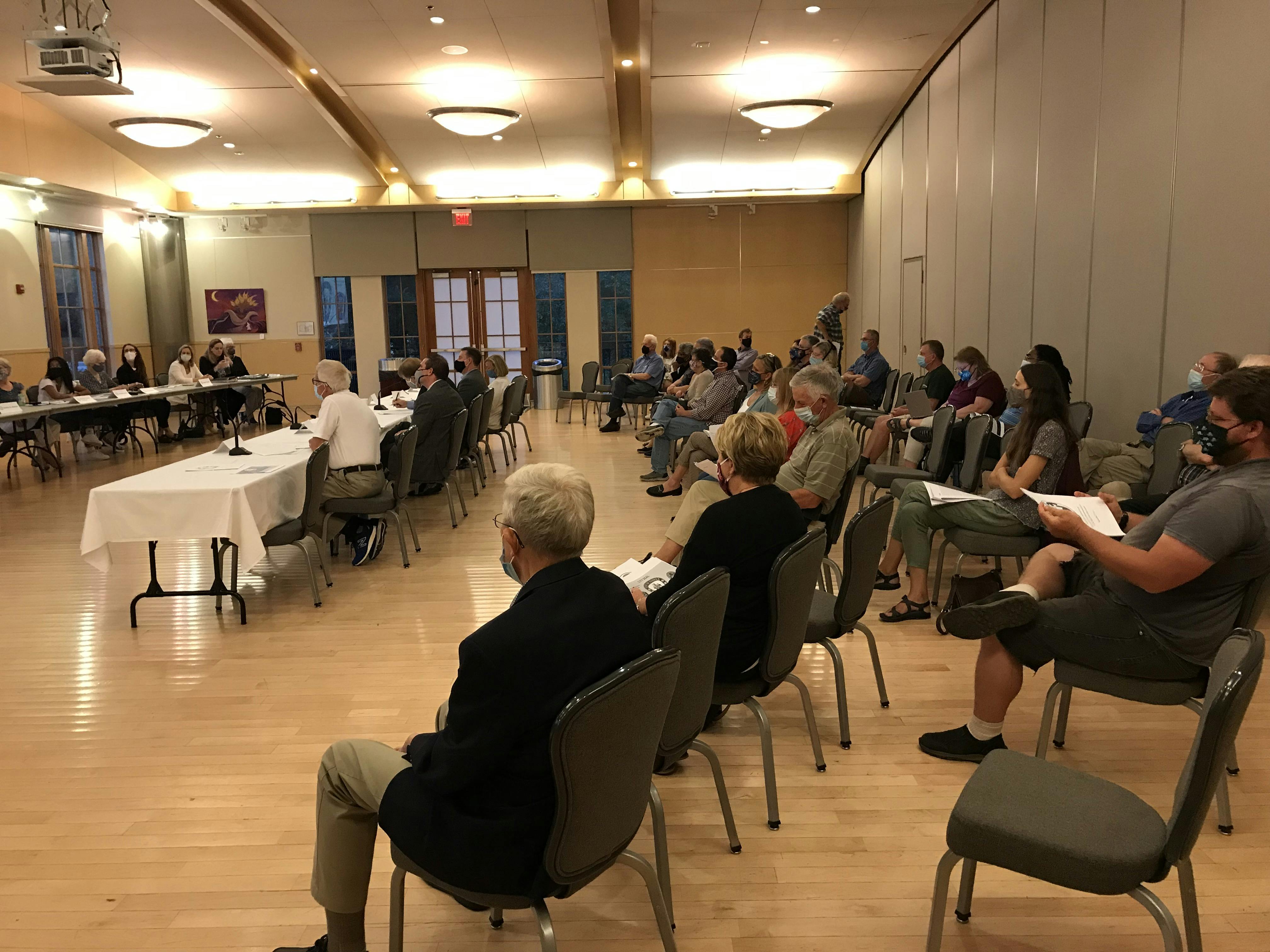
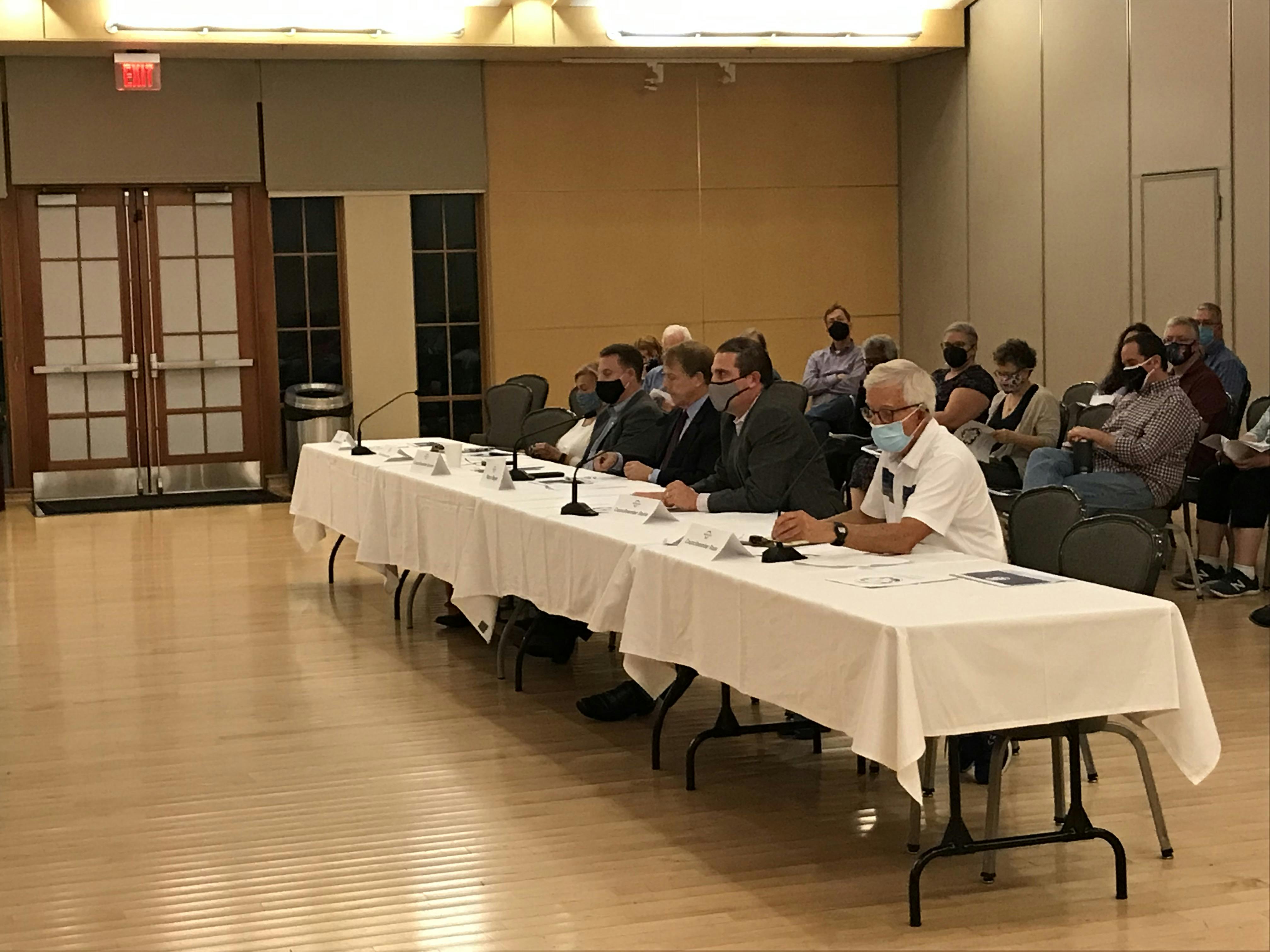
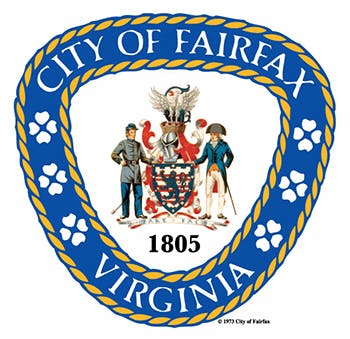

Listening to what's being discussed and reading through all the comments below, it's evident who doesn't live in Mosby Woods. The streets are Civil War names, not just confederate names. The following are a handful of Union side names: Jessie, Scout, Sherman, Tecumseh, Atlanta (a pivotal Union victory) and much more.
If we're going to rename everything, then when is the City changing its name? Lord Fairfax the 6th owned hundreds of slaves. He also sold slaves.
Since this conversation has started over a year ago, I have heard from at least four families who live in Fairfax City but intentionally chose NOT to live in Mosby Woods because of the unwelcoming nature of the neighborhood name and street names. As a resident of Mosby Woods, this is unacceptable and I am embarrassed that there is a feeling that MW should be avoided. How many more people have been discouraged from living in our neighborhood, or our City for that matter, because there is a subtext of an exclusionary Confederacy theme? We will never know the full extent of the harm that has been caused, and now we have an opportunity to correct course. Let's take it and move forward a more inclusive, welcoming future.
No, we are not responsible for the shameful acts of out ancestors but, surely, we can do this simple thing to affirm who we are today.
Please, lets change these names because it is the kind thing to do. Eighty years ago, the developers chose these names probably thinking they were being original, and probably without much thought. We can fix that now. We have other ways to remember our history, to honor it and to overcome it. A child spotting 'Plantation' on a street sign while biking in her neighborhood doesn't need to be one of them.
I fully support changing these troubling names -- it's one thing to debate maintaining or erasing our actual history but how is it controversial to change a small number of Confederacy-celebrating names put into a subdivision built in the 1960?
The names should change, at least the most bothersome ones like plantation and confederate. We're not erasing history, it's a street name not a history book. These names now make people uncomfortable and has the potential to make people think less of us for continuing to use these names. Isn't that enough?
Remember Lord Fairfax had slaves. Are we going to change the name of Fairfax City, I recommend Fair City. Virginia was a slave state that became part of the Confederate States of America and fought to maintain slavery. Let’s think of a new name that we can recommend to the state legislature. When will George Mason University change it’s name.
Does Fairfax city for all really mean for all
Does it include those whose families have lived here for generations and thus have strong ties to Confederate veterans? Or will they be excluded from “all”?
For Mosby Woods street names:
1. Change "Plantation Parkway" to "Proclamation Parkway" (keeping the P alliteration),
2. Change "Confederate" to "Conciliation",
3. Change "Reb" to a simple one-syllable word that is not controversial (e.g., Deb, Web, Rev, Bev or even Krebs, etc.)
Changing just these three names might represent the least common denominator that almost everyone would find acceptable.
I am a fairly long-term resident (11 year) of a problematically named street (Plantation Parkway) in a problematically named neighborhood. It is vitally important to me that we change the name of both in order to help create a more inclusive and welcoming neighborhood. While there is other substantial work that needs to occur after that, this name change is an important first step in the process. I completely understand that this occurs some inconvenience and maybe even cost, but it is a necessary part of important change.
I just posted a new blog on the Neighbors for Change website (.net) with a look at "The problem with the word plantation." I believe it will be relevant to the City's Listening and Learning session tonight. I'd love for people to check it out: www.neighborsforchange.net/blog/the-problem-with-the-word-plantation
It includes some recent media around problematic plantation-themed frat parties, my personal experience visiting a beautiful plantation in Charleston years ago, and shifts in the south's approach to preserving and sharing plantation history.
It also shares my gratitude for the City's efforts on these topics and hope that the City will soon help us rename Plantation Parkway in my neighborhood. (I also very much hope renaming will remove the words "Confederate" and "Reb" from Mosby Woods.)
Thank you!
Times change, people change, street names change. Go ahead and change them. We still have our museums, text books, battlefields, and cemeteries for learning about the civil war, so there is no "cancelling" going on. A good point is brought up though about small businesses, particularly restaurants. For any business the relies somewhat on printed material, whether it be menu's or fliers (I am not very concerned about business cards as that is usually a very small expense) I do believe consideration should be taken. I don't know if this could be in the form of tax breaks, or an expense they could submit to the city assuming that the road/location has had its name updated.
By reclaiming streets, schools, and a subdivision, from the Confederate nomenclature of earlier generations, the City of Fairfax will give a gift to the future: a community free from this discriminatory messaging. It will also provide a lesson: we may not be able to change the past, but we can challenge its choices.
The two most recent Listening and Learning sessions (March 11 and March 25) were somewhat disappointing in that they had very little City of Fairfax-specific content. It seemed that the presentations were largely non-customized, pre-existing packages covering broad topics, i.e., fair housing and structural racism. The presenters could have prepared more thoroughly by doing some research into the historical and current practices of the City of Fairfax. I believe adding our local context to their outside expertise would have made the presentations more meaningful as contributions to this community conversation.
I am soooo tired of hearing everything that named after a Confederate must be erased for symbolic reasons and to create racial and social equity, without any explanation for how it will make any black persons life better.
The Civil War and its aftermath are important part of our history, and erasing the names and the monuments, prevents us from understanding the past and how we have grown as a City, a State, and a nation.
The Civil War was the seminal moment that forged our nation together. It converted the ideals of equality in the Declaration of Independence, into the guarantees found in the 13th and 14th amendments. Those amendments were truly radical at a time when white people both here and abroad almost universally believed in white supremacy. When Robert E. Lee and most of the Confederates officers joined the confederacy, it was because they thought that their loyalty to their home state came before their loyalty to the Federal Government--much like a French Citizen today may see his or her loyalty to France as superior to their loyalty to the EU. Reducing their participation on the side of the Confederacy to one of just trying to perpetuate slavery turns very real human beings into caricatures that perpetuates a false narrative. While the resolutions by which the various states seceded from the Union talked about protecting slavery, most southern soldiers were more concerned about protecting their homeland than they were about protecting the aristocracy's right to own slaves.
After the war, these figures also played important roles. Lee could have called for guerilla warfare, but most southerners followed his lead to prevent ongoing hostilities. Longstreet helped to protect newly freed slaves. Others, like Nathan Bedford Forest were very bad, and helped create the KKK. Lumping them all together makes no sense.
Removing these names and statues comes at a great cost. Businesses that could use capital to create new jobs will instead need to use it to change their addresses and stationary. Taxpayer dollars that could be used for education or fixing potholes, instead get spent on changing school names and perfectly good street signs.
More importantly, by getting rid of the names, we create ignorance. Finding a name on a school or a street leads to questions about who these folks were. Erasing the names only erases history. Saying it is to prevent the hurt that comes from seeing the name or the statute is just confirmation that the purpose is to erase that history from our minds.
Finally, no one has explained how erasing these figures from streets and school names, and tearing down statues, will do anything to better the condition of poor minorities. Does anyone really think that a black child will get a better education or will be more likely to succeed in life just because they travel down a road named for Malcolm X instead of Robert E. Lee? Why not take all the money that goes into such changes and use it for something that will turn equal rights into equal opportunity--like using it as seed capital to help fund black businesses. That would actually work to create social and racial equity. Everything else is just cheap symbolism.
Following up on the comment from dudabubba, I agree, and can think of many great replacement names we can select that commemorate the the Civil War. What do we want to honor? Proclamation, Progress, Memorial, Potomac, American, Remembrance, Republic, Victory, Treasury, Telegraph...
I am looking forward to leadership helping us move from the question of "should we replace divisive names" to "with what names will we move forward?" We can come together as a community to select new names and celebrate the progress made since 1865, 1965, 2020, etc...
I hear a consistent concern from those who criticize efforts like these around the country. That it is erasing history. Let's not erase. Replace! We should not erase the Civil War. We need to remember the reality, tragedy and victory. Southerners fought for the right to own human beings as property and they lost. Virtue won. Humanity won. For every monument removed and street renamed, it should be replaced with names and markers honoring the emancipated and the battle for justice.
It may be proper to remove public memorials to Confederate leaders who tried to destroy the Country. However, this effort should avoid a book-burning mentality that hurts the goal of unifying the Country in our common values. Particularly troubling, is the idea of purging recognition of the Country’s founders because they do not satisfy an unrealistic standard of perfection that neglects the unavoidable aspects of the period in which they lived. Such a purge only makes sense if one ignores what founders such as George Washington, James Madison, George Mason, and Thomas Jefferson did to bring our Country, Democracy, and Freedom into existence. Without their sacrifices and enlightenment there would be No United States, No U.S. Constitution, No Bill of Rights, and possibly no democratic governments anywhere. To anyone who has seriously studied it, the birth of our Nation was miraculous and would have been impossible without these leaders. Their involvement in the institution of enslavement is troubling and should not be excused or ignored. However, it makes no sense to lump them with those who led an effort to destroy the Country in order to retain the bigoted, brutal, and immoral institution. Therefore, memorials to the founders must be preserved; however, they should never be viewed as acceptance of their participation in enslavement, and the story of that participation should be portrayed in the proper context so that future generations can appreciate the heroic as well as flawed aspects of their history.
I find this name changing to be ridiculous. . Nobody in Mosby Woods is praising any part of slavery. History happened, you can try to erase it because of the current Cancel Culture but what then of our history ? Let me speak as a small business owner who lives on Plantation Pkwy - the amount of address changes just to all the local, state & federal agencies is massive. Our customer base is in the thousands, vehicle lettering, mailing coupons that are already printed & paid for.
Cmon folks , yes society must change so we can live in peace & equality but let’s not allow one small group who doesn’t even live in MW decide our name fate. My .02